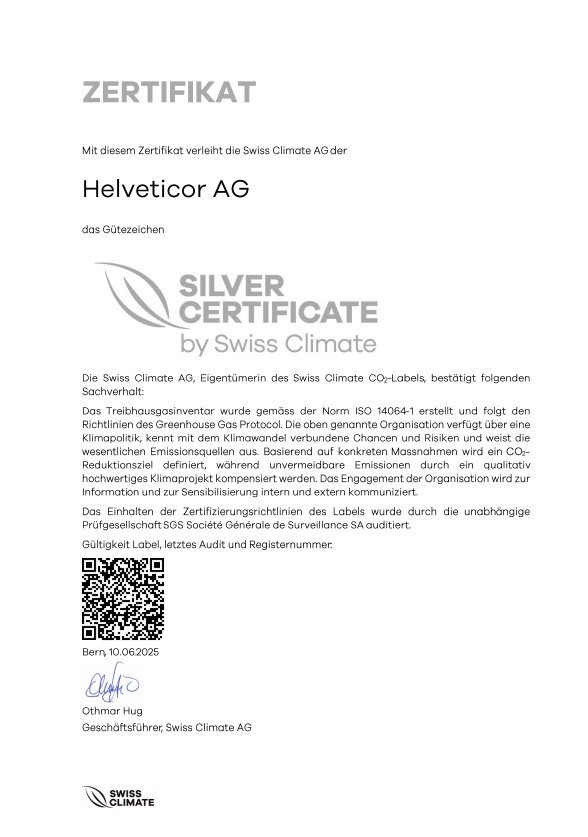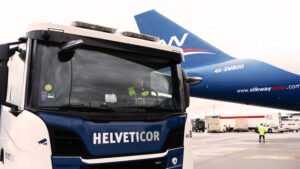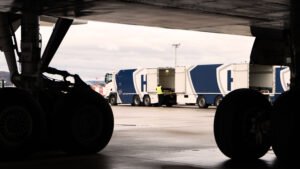Logistics meets responsibility: making climate protection visible and measurable
The challenge of modern logistics: sustainability and transparency
The demands placed on modern logistics are changing rapidly. Society, markets and regulators are increasingly demanding concrete answers to the pressing question: How can we create an efficient supply chain that is also environmentally responsible?
The urgency is particularly evident in logistics – as the backbone of international value creation: transport emissions, complex supply chains and international partners make it challenging to act in an ecologically consistent manner. The central task is not only to reduce emissions, but also to document them in a measurable, comprehensible and credible manner – both internally and externally.
Our answer: the Silver Certificate by Swiss Climate.
With the silver CO₂ label, Swiss Climate AG recognises our concrete progress – following a strict audit based on the ISO 14064-1 standard and the Greenhouse Gas Protocol. This means that our climate strategy is not only visible, but also reliable, independent and externally verified.
This is exactly where we come in – with a measurable, externally audited contribution to climate protection.
Because we don’t just want to take action, we want our commitment to be transparently documented and objectively assessed.
Sustainability with horsepower - yes, it's possible.
Progress means resolving old contradictions. Today, we can do both: strong logistics performance and active climate protection. With alternative drive systems, transparent CO₂ data and a certified management approach, we make sustainability visible on the road and in our reporting.
Logistical challenges - our proven solutions
1. complexity of Scope 3 emissions
What happens outside your own company is difficult to control – but it is crucial. This is precisely what makes Scope 3 emissions the biggest black box in the carbon footprint. Indirect emissions along the supply chain – known as Scope 3 emissions – pose major challenges for many companies. There is often a lack of consistent data and the large number of transport routes makes it difficult to precisely allocate the CO₂ impact.
Our validated solution:
Thanks to our certified CO₂ report, we record emissions across all modes of transport – road, rail, air and sea. This reporting is part of the certification process by Swiss Climate and forms the basis for fact-based decisions.
2. targeted reduction of emissions in road transport
Thousands of lorries roll along Europe’s roads every day – loaded with goods and on their way to customers. But there is an invisible danger behind every distance travelled: CO₂ emissions. Road transport in particular is considered one of the key challenges on the road to climate-friendly logistics.
The key question is: How can a company take responsibility and at the same time ensure that supply chains function smoothly?
Our approach:
With the use of HVO100 (Hydrotreated Vegetable Oil), we are focussing on an advanced alternative to fossil diesel. This renewable fuel enables a significant reduction in emissions – without functional restrictions.
More than three quarters of CO₂ emissions can be saved compared to conventional diesel. HVO100 therefore offers an immediately realisable solution. For us, this is a concrete step on the way to more sustainable logistics.
Our fleet remains efficient, flexible and reliable, and at the same time we are making a measurable contribution to climate protection. For us, the switch to HVO100 is more than just a technical measure: it stands for a corporate self-image that combines ecological responsibility with operational efficiency.
Another advantage: the changeover is particularly practical, as we can use HVO100 in our existing vehicle fleet without any technical modifications. This makes the conversion not only efficient, but also economically attractive – a real benefit for both the climate and the company.
We believe that those who act sustainably today will secure their own future viability tomorrow. That is why we invest specifically in solutions that enable ecological progress and at the same time can be integrated smoothly into everyday logistics.
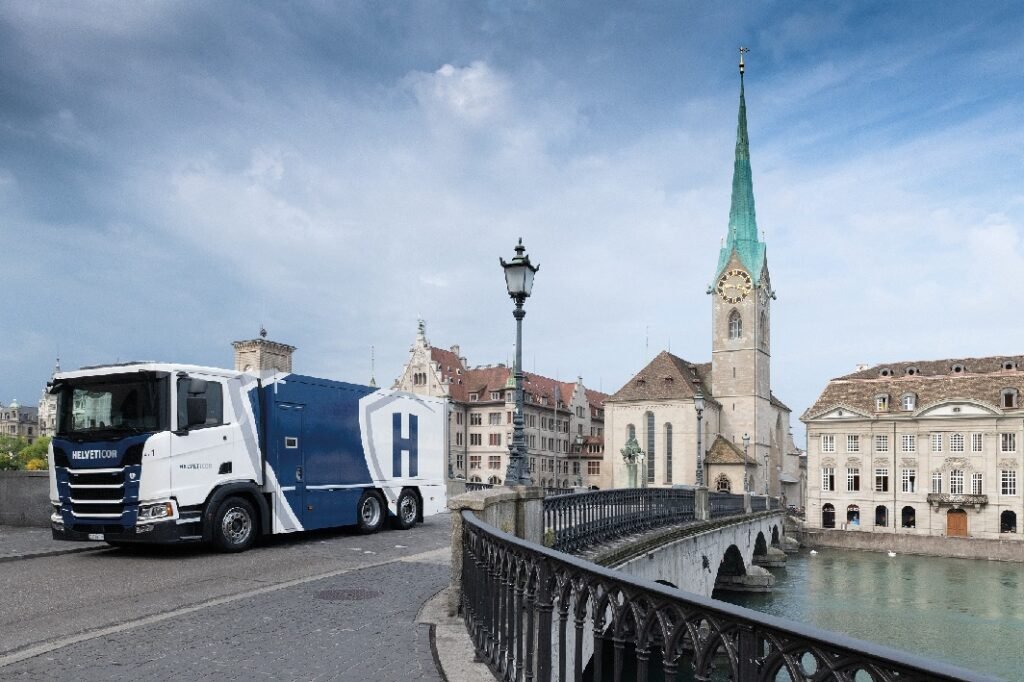
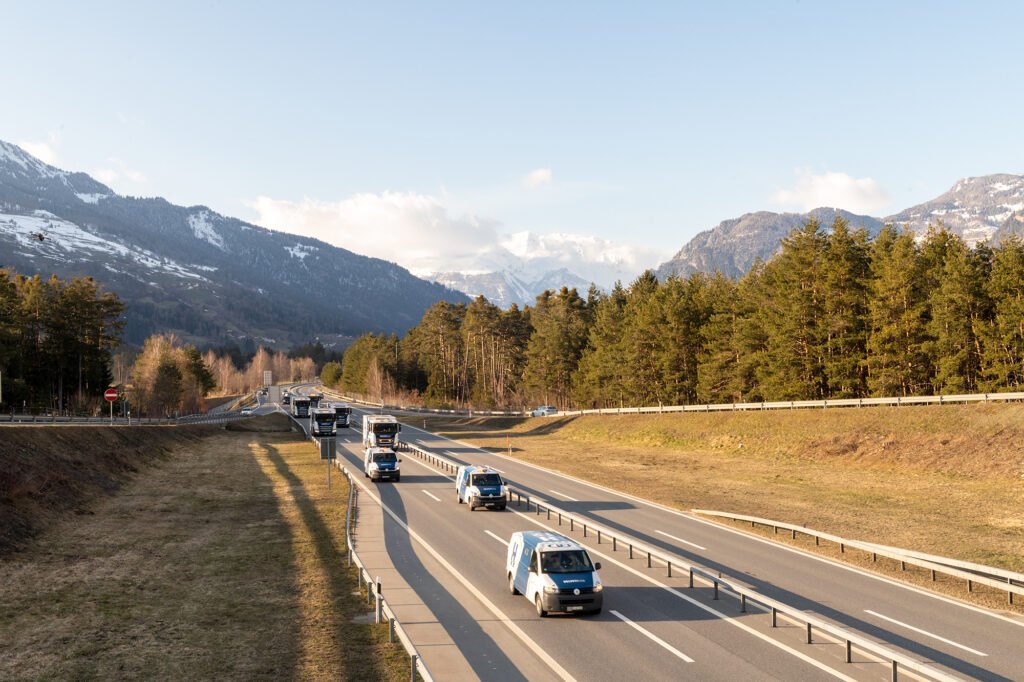
3. sustainability needs verifiable substance
Sustainability has long been a key corporate objective – but a word alone is not enough. Without verifiable data, external audits and a structured approach, sustainability measures lose credibility. Stakeholders today expect more than just declarations of intent: They demand reliable evidence of impact and transparency.
Certified: The Silver Certificate as proof
The Silver Certificate by Swiss Climate gives our efforts a strong, independent seal of approval. Swiss Climate not only verifies our carbon footprint, but also our strategy for avoiding and offsetting emissions – neutrally, comprehensibly and annually auditable. The certificate not only creates trust – it also facilitates ESG reporting, tenders and communication with stakeholders.
4. climate protection does not end with the carbon footprint
Sustainability is more than just a question of emissions figures – it is a holistic understanding of responsibility. If you want to act credibly and for the long term today, you have to think beyond CO₂ reduction: towards biodiversity, climate adaptation and regional resilience.
Our solution – an active contribution to nature:
As part of our climate strategy, we have been actively involved in the ‘Sustainable management of Swiss forests’ project in collaboration with Swiss Climate since 2025. Over 7,279 hectares of forest in the canton of Schwyz are being managed, protected and used ecologically in the long term. In this way, forests can bind CO₂ in the long term, preserve habitats for animals and plants and at the same time be managed in an economically viable way.
A particular focus is on regional value creation: the energy wood harvested is processed locally and used as fuel in the region. This creates a closed cycle that reduces emissions, avoids transport routes and secures local jobs.
For us, climate protection not only means avoiding emissions, but also actively investing in the preservation of our environment – right here in Switzerland. The project combines ecological impact with regional benefits, promotes local value creation and makes sustainability tangible in an authentically Swiss way.
For us, forest is not just green - it is emotion.
When we walk through the forest in the canton of Schwyz, we know why we are doing this. It’s not just about CO₂, but about what we leave behind – for those who come after us. That’s why we invest where it counts for us personally.

The importance of the Silver Certificate for our logistics strategy
Our renewed Silver Certificate signals this: We know our carbon footprint. We act. And we allow ourselves to be measured against it. We go beyond symbolic measures – and make concrete progress:
- Complete CO₂ survey across all means of transport
- Use of alternative fuels such as HVO100
- External testing and certification by SGS & Swiss Climate
- Systematic climate strategy with emission avoidance, reduction and compensation
The future of logistics: progress through responsibility
Sustainability is no longer a minor issue in logistics – it is a prerequisite for resilience, competitiveness and trust. Those who actively manage CO₂ emissions along the supply chain today not only create ecological added value, but also strengthen economic stability.
Companies that systematically integrate climate and environmental responsibility into their processes and are committed to it strengthen their position vis-à-vis customers, investors and regulatory requirements. At the same time, they secure resources in the long term, reduce energy costs and position themselves clearly on the market.
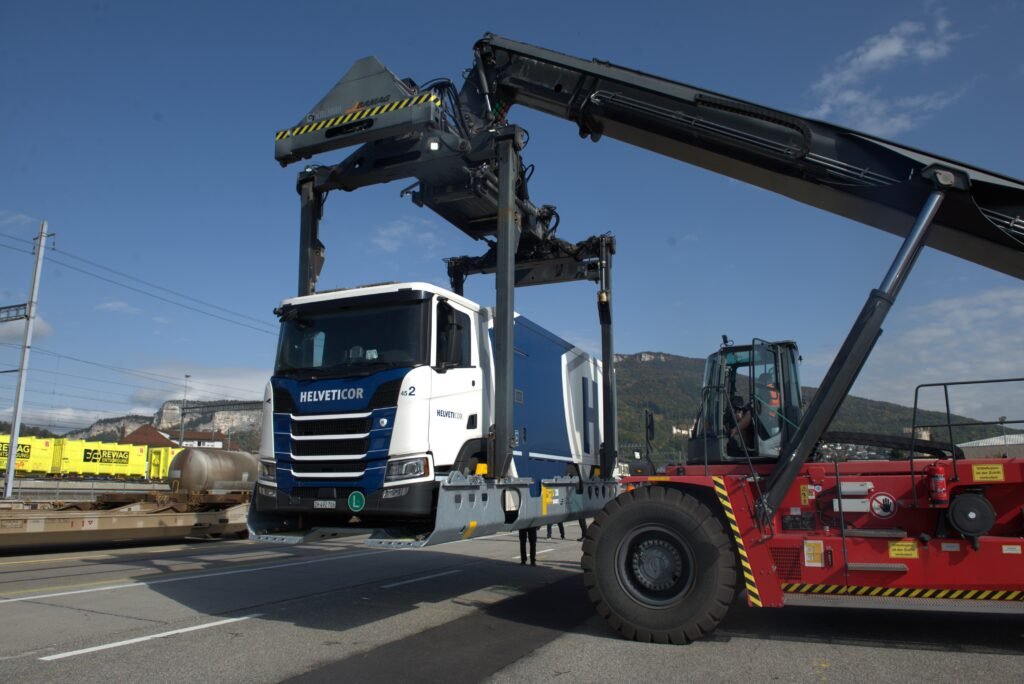
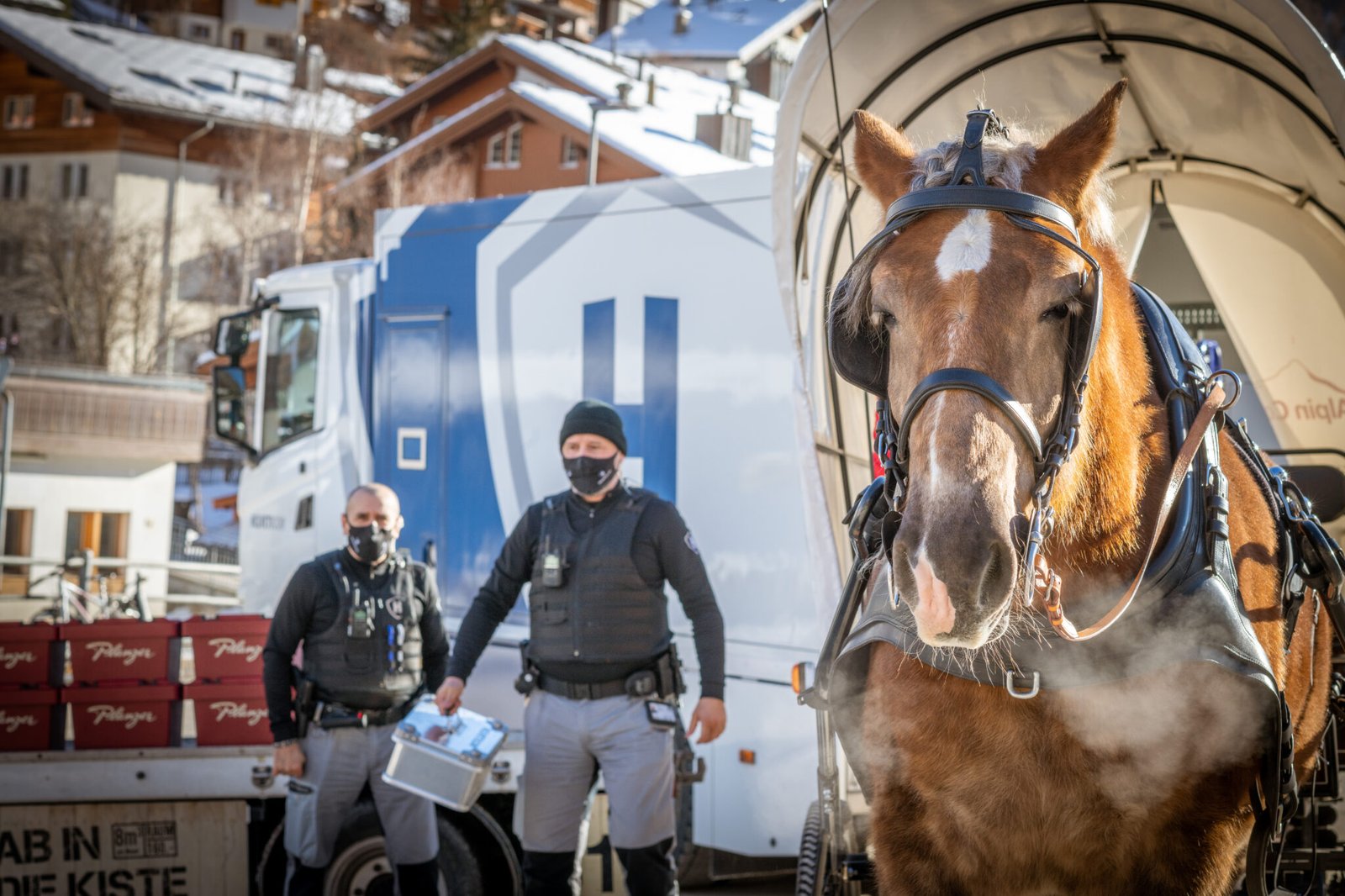
What is needed for this:
- Transparent data across all transport carriers
- Innovative approaches, such as alternative fuels or digital emissions reports
- Credible certificates such as the Silver Certificate, which provide proof of commitment
Those who take responsibility today will strengthen their competitiveness tomorrow. Now is the right time to turn sustainable logistics into an entrepreneurial strength.
